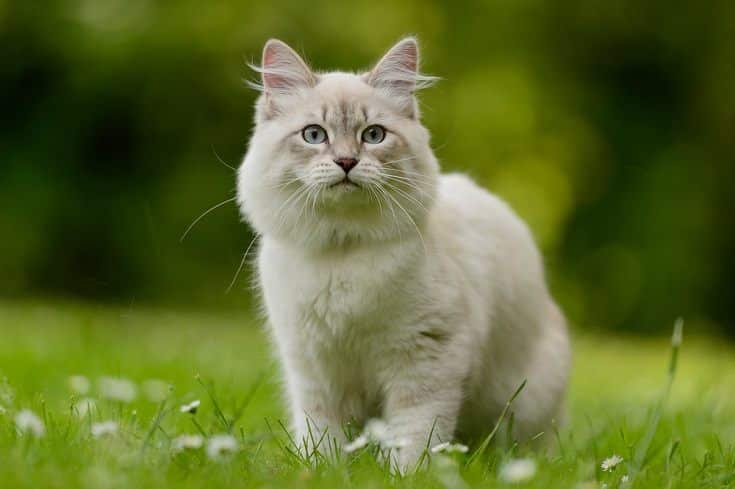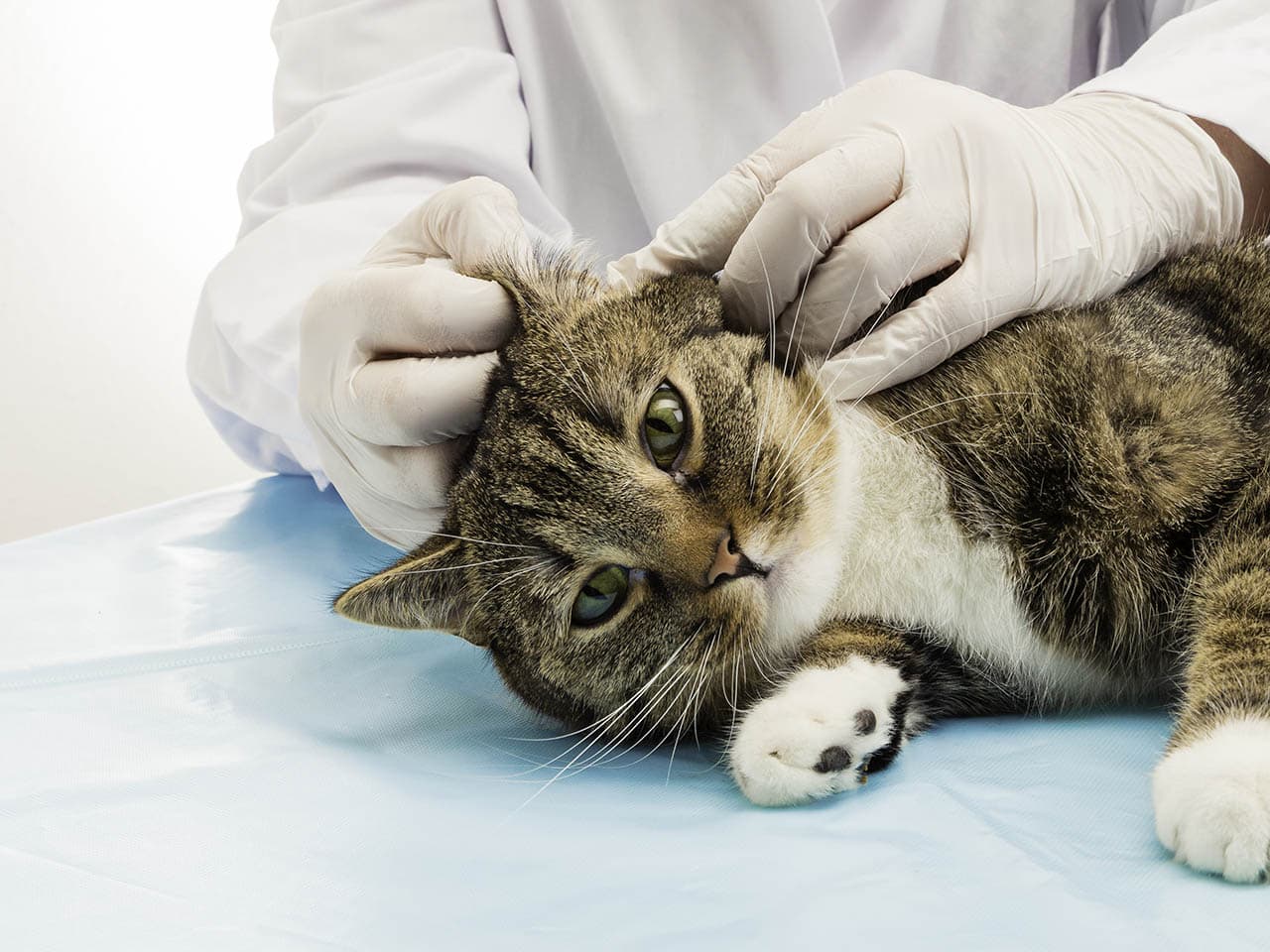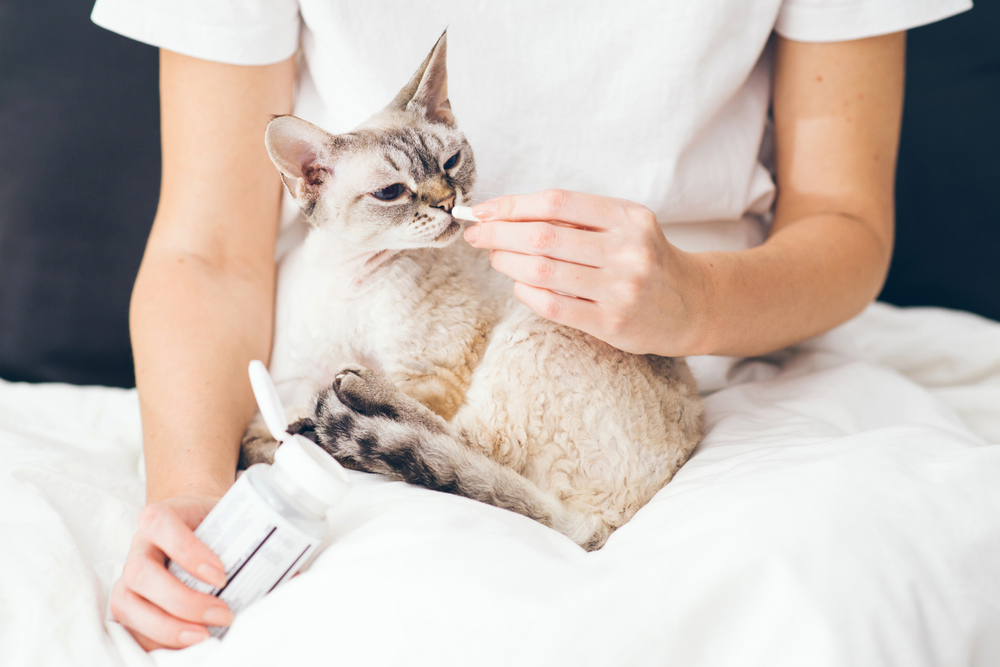If your cat has started developing an interest in what you cook, you may be wondering if the crispy and crunchy zucchini would be a suitable addition to the cat’s diet. You may be pleased to know that while many plants are toxic to cats, zucchini is not.
While cats are naturally carnivorous, in addition to eating meat, fish, and chicken, they require a balanced diet just like humans do. Although felines don’t require vegetables in their diet, adding cat-friendly veggies like zucchini occasionally can provide them with healthy antioxidants.
In this article, you’ll discover how zucchini can fit into a kitty’s diet, how to introduce it, and why you should.
What Is an Ideal Diet for a Cat?
You may have heard the term “obligate carnivore,” which implies that cats are naturally born to be carnivores, as they can only find some of the nutrients they require by consuming other animals’ flesh. For this reason, a feline’s digestive system is designed to digest meat and absorb animal proteins only.
They are not designed to handle many vegetables and fruits. However, cats can process small amounts of fruits and veggies. Cats in the wild eat the whole prey, including the grass and plant content inside their prey’s gastrointestinal tract. That is why you can include cat-friendly plants like zucchini to supplement your kitty’s dietary needs.

Reasons Why Zucchini Is a Healthy Option for Cats
Giving a piece of zucchini to your cat is beneficial to your cat as it harbors a fair amount of valuable minerals and nutrients like:
1. Antioxidants
All cat-friendly plants, including zucchini, contain antioxidants, which protect the cat’s cells against free radicals and combat heart diseases, cancer, and other health problems.
2. Fiber

Zucchini is a good source of fiber. By adding some to your cat’s meals, you can help prevent constipation and aid in the maintenance of healthy gut microflora. Healthy bowel movements and gut microflora are essential to a cat’s overall immune system and for disease prevention.
3. Magnesium
Zucchini is rich in magnesium, one of the many nutrients vital to cats as they are to humans. Unfortunately, most cat parents are oblivious to how crucial this mineral is to their pets.
Magnesium plays a vital role in a cat’s metabolic functions, as it is necessary to activate over 300 enzymatic systems. It’s also required for neurotransmission and neuromuscular contraction, including the heartbeat and digestion.
2. Potassium
Zucchini is also a source of potassium, which is another essential mineral that helps control your cat’s nerve and muscle function. Potassium plays an important role in maintaining the intracellular volume.
5. Fewer Calories
You can boost your cat’s playfulness by introducing zucchini to their diet. It’s also a valuable weight-loss tool for overweight or obese felines. You can replace high-calorie treats with small pieces of zucchini, which will help them reduce their daily caloric intake and lose weight while still having a full tummy.
Zucchini is also a food that you can use to bulk up your cat’s meals. It is a healthy and inexpensive filler to space out the caloric intake in regular cat food, helping to reduce the total amount of food your cat eats.

Are Cats Allergic to Zucchini?
You don’t have to worry about your cat reacting to zucchini because zucchini sensitivity among cats isn’t a common occurrence. However, just because it is rare doesn’t mean it is impossible. You should be careful and watchful about how much zucchini you offer your feline friend.
Check for behavior and body changes such as swelling, itching, breathing difficulties, and digestion issues. Consult your vet as soon as possible if you suspect your cat may be allergic to zucchini.
How to Feed Zucchini to Your Cat
You can use zucchini as a treat, or if they dislike the vegetable at first, trick your cat into eating it by mixing it into their regular cat food.

Here’s how to prepare zucchini.
- Cut the Zucchini – After you wash it, cut, shred, or chop the veggie into sizable pieces that are comfortable for your pet to chew and swallow. You might also consider peeling it first to prevent the cat’s taste buds from detecting the bitter taste it picks from green vegetables.
- Cook the Zucchini – You can cook zucchini just like you would for your meals, but you must avoid adding spices, excessive oils, or onions. Plain, gently steamed, boiled, or raw zucchini (but well-washed and disinfected) zucchini are the best options.
- Serve the Zucchini – The key to success is gradually introducing your kitty to zucchini, a few pieces at a time, maybe one or two a day at first, and then increasing the quantity by a few pieces each week. If you are adding this veggie to dry cat food, consider pat drying it with a paper towel first to avoid making it soggy. However, if your cat does not mind the change in consistency, finding ways to add moisture to your cat’s dry food is always a good idea. On the other hand, if you add the zucchini to wet food, you can add it to the food and mix it. You may consider mashing the veggie before combining it with cat food if your cat is fussy. However, it would be best to remember not to serve your cat too much zucchini since you don’t want it to replace other healthy foods. Felines need well-balanced nutrition plans for optimum health.
How Much Zucchini is Too Much?
Most of your cat’s nutrition should come from animal protein sources. As obligate carnivores, cats require meat in their main diet to get all the necessary nutrients. You should be especially mindful when including vegetables and fruits in your cat’s diet, as you want to avoid increasing their carbohydrate intake. But zucchini is low in carbohydrates, which is why many commercial cat food producers include it in their cat food ingredients and why it helps with weight loss in cats.
Feel free to incorporate zucchini into your cat’s daily diet, but do it gradually. It’s best to observe your cat’s body and consult with your family vet to help you understand and evaluate your cat’s specific nutritional requirements
Learning about what your cat can and cannot eat is a crucial part of keeping them happy and healthy! Choosing a bowl to serve cat-friendly foods in is another important decision pet owners face. Satisfy the specific needs of your cat with the innovative design of the Hepper NomNom Cat Bowl. Learn why it’s our (and our cats!) favorite food and water dish here. At Catster, we’ve admired Hepper for many years and decided to take a controlling ownership interest so that we could benefit from the outstanding designs of this cool cat company!
Summary
Several vegetables and fruits are unsuitable for felines, and you have to be careful when your cat tries to grab a bite from your plate. However, your kitty can eat zucchini, and it may even be one of the healthiest human foods to share with your pet, given its low-calorie content. Besides being a great addition to a cat’s diet plan, it is delicious and affordable!
- See Also: Can Cats Eat Chives?
Featured Photo Credit: congerdesign, Pixabay














